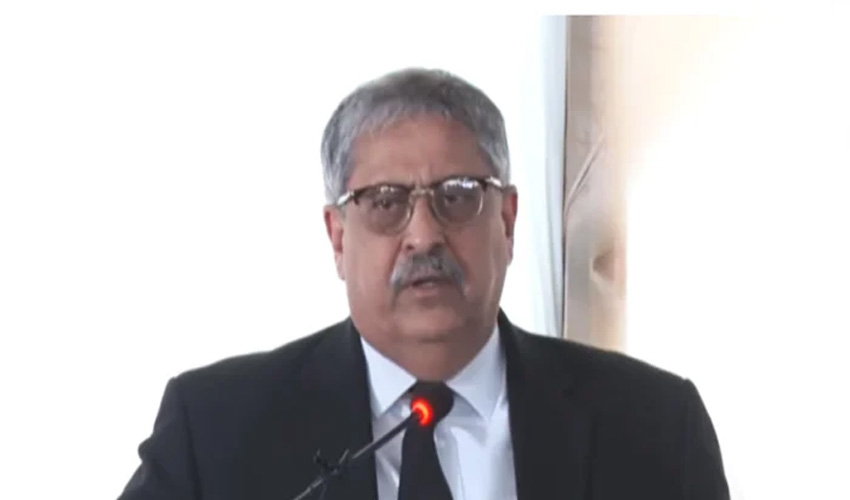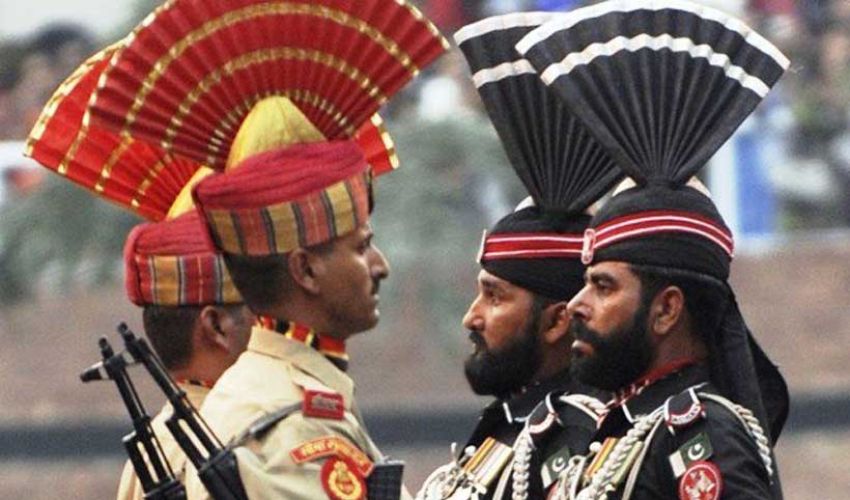Justice Athar Minallah of the Supreme Court, while defending the decision to open the Islamabad High Court on the night of April 9 when he was the chief justice, said courts should remain open whenever there is a threat of a martial law.
Addressing the New York City Bar Association on 'Independence of Judiciary and Rule of Law in Pakistan', the senior judge highlighted the challenges and critical importance of judicial independence and the rule of law in Pakistan.
Justice emphasised that the Supreme Court should not involve itself in political matters, referencing the Memogate case and the removal of former prime minister Yousaf Raza Gilani. "The Memogate case was not something that the Supreme Court should have taken up," he stated. "It is not the job of the Supreme Court to remove an elected prime minister from office."
He criticized the decision to remove Gilani for not writing a letter to Swiss authorities against then-president Asif Zardari, citing Zardari's constitutional immunity.
Judiciary's trolling
Discussing contemporary challenges, Justice Minallah revealed the difficulties in appointing judges, noting it took years to finalize appointments due to systemic resistance, even from the prime minister. He underscored the judiciary's vulnerability to public scrutiny and social media trolling, sharing personal experiences of his children's pictures and personal data being leaked.
He said a judge knew how to get his orders implemented, adding that because of their order, judges are trolled on social media. He recounted how the personal data and photographs of his children were leaked online. "Challenges are a test for a judge, and he/she should not be afraid of criticism," he highlighted.
Threats of martial law
Justice Minallah defended his decision to keep Islamabad High Court open on the night of April 9, 2022 amid rumours of a martial law being imposed. "There was talk of imposing martial law on a TV channel," he said. "Courts should remain open whenever there is a threat of martial law."
"The Islamabad High Court is a constitutional court. It has the responsibility to remain open 24 hours," he remarked.
He recounted the events of the night of April 9, 2022, describing how he was told that such circumstances had arisen that people wanted to file petitions, including Supreme Court Bar Association president Ahsan Bhoon. He further said a petition was sent to him via WhatsApp while he was at home in pyajamas. Despite the petition being frivolous and him not issuing an order on it, he emphasized the importance of maintaining judicial vigilance.
The night of April 9 was when former prime minister Imran Khan lost a no-trust motion from the opposition an hour past midnight, with 174 members in the 342-strong house voting in favour of the resolution.
The judge said a political narrative had been created as to why courts were opened at midnight, explaining that there was a threat of martial law among people. "I want the courts to remain open whenever there is a threat of martial law," he stressed.
Personal challenges, lawyers movement
Reflecting on his career and personal challenges, Justice Minallah recounted his father's extensive service in Balochistan and his own diverse educational background in Peshawar, Gilgit, and North Waziristan. He expressed his passion for the legal profession and shared that he and two friends, who practised law together, are now judges in the Supreme Court.
He detailed the disruptive period of October 12, 1999, when former president Gen (retd) Pervez Musharraf overthrew the elected government, dissolved the assembly, and imposed martial law.
"Pervez Musharraf tried to take a second oath from the judges," Justice Minallah recalled, adding that five respected and independent judges refused to take the oath, a decision that inspired him to momentarily cease practising law.
Justice Minallah also highlighted the Lawyers' Movement, noting the detention of former chief justice of Pakistan Iftikhar Muhammad Chaudhry in Army House in March 2007 and the subsequent detention petition filed despite numerous objections.
He recalled that on the advice of Justice Yahya, it was decided to file an illegal detention petition, adding that the judges knew that the chief justice must be under house arrest, but none of them took it up.
He lauded the 18th Amendment as a significant step for Pakistan but criticized the 19th Amendment as contrary to the principles of judicial independence championed by the Lawyers' Movement.
Justice Minallah recalled that in the appointment of judges, it took him three years to convince one judge and two to convince another judge. He added that no one objected to these judges, but the whole system was afraid of them. The then PM was also among those who resisted the appointment of these judges.
He further said that the Supreme Court did not have the power to protect unconstitutional measures or violation of the Constitution. "If the judges resort to this, it is a violation of their code of conduct," he insisted.



























